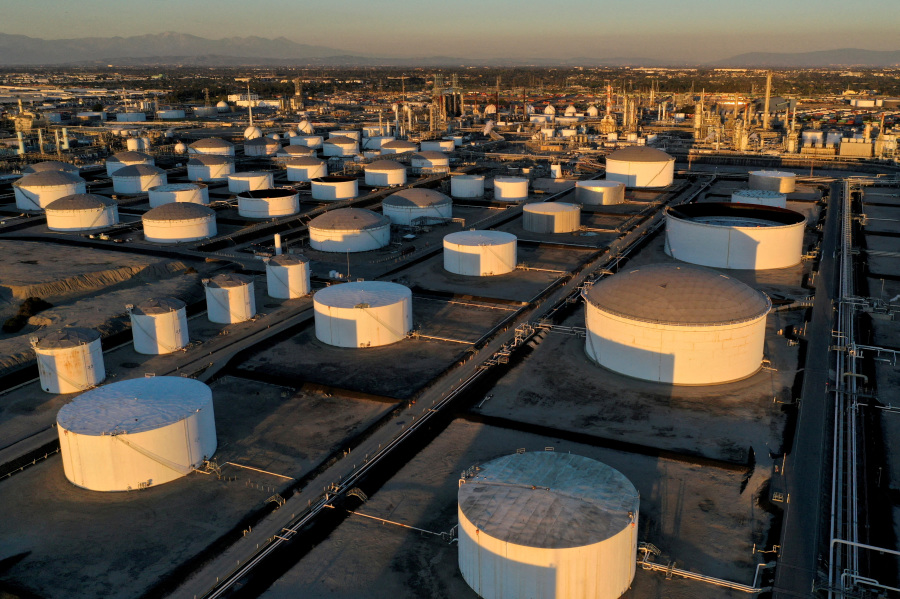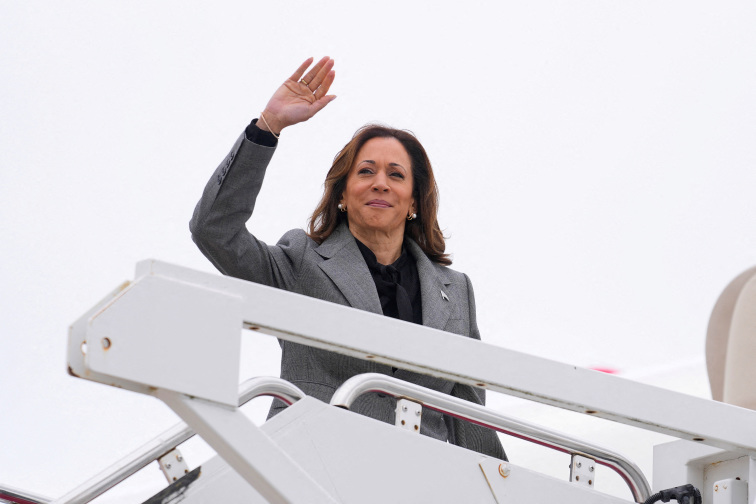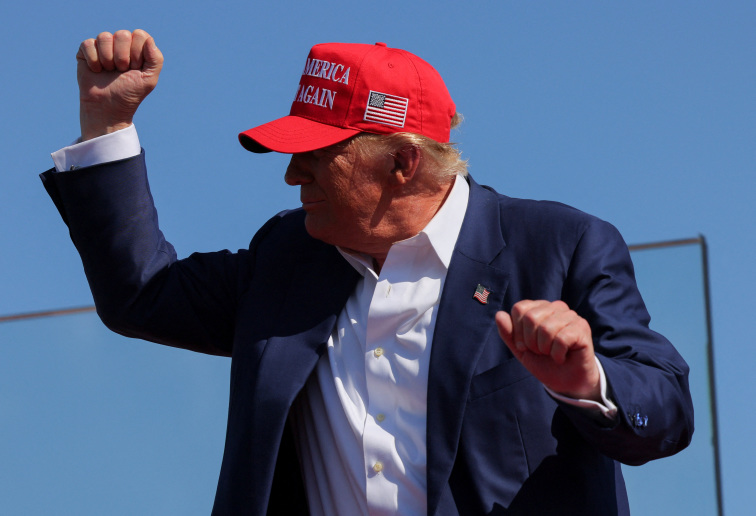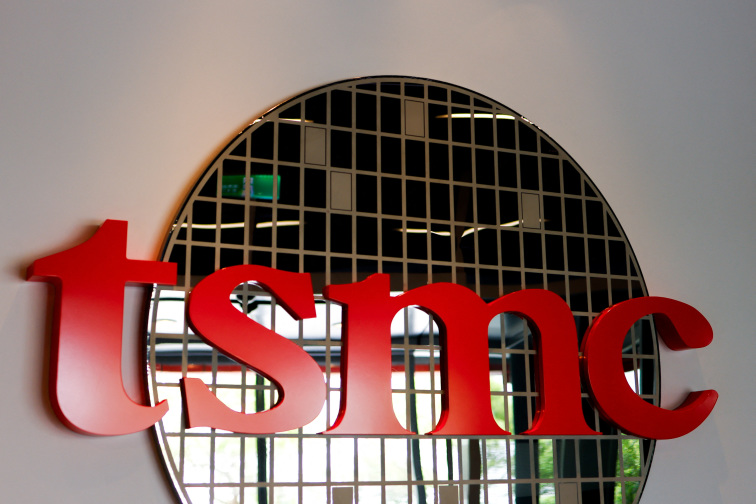Storage tanks are seen at Marathon Petroleum's Los Angeles Refinery, which processes domestic & imported crude oil in Carson, California, U.S., March 11, 2022. Picture taken with a drone. (REUTERS/Bing Guan)
SINGAPORE (Reuters) - Oil prices rose on Monday, buoyed by concerns that heightened conflict in the Middle East may curtail regional supply and expectations last week's outsized U.S. interest rate cut will support demand.
Brent crude futures for November were up 60 cents, or 0.8% at $75.09 a barrel at 0415 GMT. U.S. crude futures for November were up 64 cents, or 0.9%, at $71.64.
Both contracts rose in the previous session on support from the U.S. interest rate cut and a dip in U.S. supply in the aftermath of Hurricane Francine. Oil prices climbed last week for a second week.
A softer economic outlook from top consumers China and the U.S. capped further gains.
"Geopolitical tensions in the Middle East have edged up a notch between Israel and Hezbollah, which could leave oil prices well-supported on the risks of a wider regional conflict," said Yeap Jun Rong, market strategist at IG.
"However, price gains have been somewhat more measured, which may reflect some reservations over the actual impact on oil supplies, given that the Middle East conflict has been dragging for some time now with little disruptions so far."
Hezbollah, an Iranian-backed group based in Lebanon, and Israel exchanged heavy fire into Sunday, as the group sent rockets deep into northern Israeli territory after facing some of the most intense bombardment in almost a year of conflict.
The conflict has escalated sharply in the past week after thousands of pagers and walkie-talkies used by Hezbollah members exploded. The attack was widely blamed on Israel, which has not confirmed or denied responsibility.
While both oil benchmarks rose more than 4% last week on the back of the U.S. rate cut, weaker demand sentiment in top oil importer China is capping the upswing, said Phillip Nova, senior market analyst Priyanka Sachdeva, in a note.
"The demand for fuel is still up in the air," she said, adding that the U.S. rate cut "raised concerns that the Fed may have envisioned ailing labor markets".
Last Wednesday, the U.S. Federal Reserve cut interest rates by half a percentage point, a larger decrease in borrowing costs than many expected.
Interest rate cuts typically boost economic activity and energy demand, but analysts and market participants are concerned the central bank may see a slowing job market.
(Reporting by Emily Chow and Gabrielle Ng; Editing by Christian Schmollinger and Stephen Coates)











News magazine bootstrap themes!
I like this themes, fast loading and look profesional
Thank you Carlos!
You're welcome!
Please support me with give positive rating!
Yes Sure!